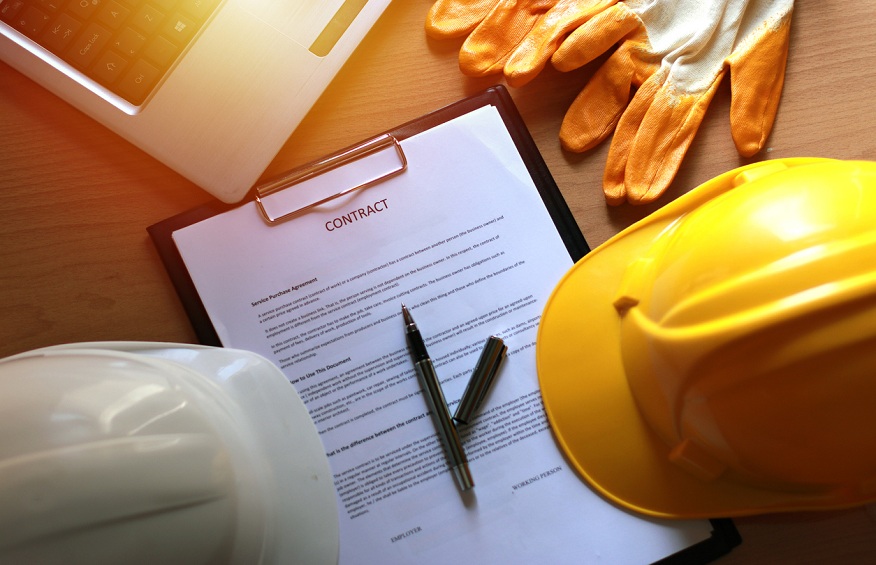Construction contract laws you must know to protect your project from the start
Starting a construction project comes with legal aspects to make sure everything goes well. Knowing important construction contract laws is vital to protect your project from the start. This article explains these legal basics in simple language that anyone can understand, helping you deal with the complexities of construction contracts.
Clear Contract Terms
A solid construction project begins with a well-written contract. It’s crucial to make sure the terms are straightforward and cover everything. The contract needs to outline details like the project’s scope, timeline, costs, payment schedules, and specifications. Using clear language helps avoid confusion and fosters a positive working relationship among all parties involved. Northern Beaches lawyers professionals can help in writing a proper contract, so both parties are satisfied.
Roles and Responsibilities
Clearly defining the roles and responsibilities of everyone in the project is essential. This includes the contractor, subcontractors, and the client. Specify each party’s tasks to avoid conflicts and maintain accountability throughout the project. When everyone knows their responsibilities, it reduces the chances of disagreements and ensures that each person understands their part in making the project successful. This clarity fosters a cooperative atmosphere on site.
Compliance with Building Codes and Regulations
For any construction project, it’s very important to stick to the local building rules. These are the guidelines set by the area where you’re building. Take the time to understand these rules and then make sure your contract clearly says that you have to follow them. If you don’t stick to these rules, there could be consequences like fines or other legal troubles. So, by putting these rules in your contract, you’re saying, “Hey, we promise to do things the right way.” This not only keeps your project legal but also helps it run without any big hiccups.
Insurance and Liability
In case of accidents or unexpected situations, having insurance is important. Make sure your contract has sections that talk about the kinds and amounts of insurance needed. Also, clearly say who is responsible for what. This is crucial for handling damages or injuries properly. By defining liability in the contract, you make sure that if something goes wrong, everyone knows what they’re responsible for. It’s like a safety net that helps manage unexpected events.
Change Orders
Because construction projects can change a lot, it’s important to have a clear plan for making changes. Put a process for these changes in your contract. Say exactly how someone can ask for changes, how we decide if it’s okay, and how it will affect the project’s timeline and budget. Having this in the contract helps everyone know what to do if things need to change, making sure any adjustments happen smoothly and without causing big problems. It’s like having a roadmap for handling changes.
Payment Terms
Make sure your contract has a clear plan for payments. Say when each payment is due, how much is due at each step, and what happens if a payment is late. Doing this helps avoid arguments about money and keeps a steady flow of cash for everyone working on the project. It’s like having a financial roadmap that everyone can follow. This way, everyone knows what to expect when it comes to payments, reducing the chances of disagreements.
Dispute Resolution Mechanism
To handle disagreements, it’s smart to have a plan in your contract. This plan could involve talking things out, using a neutral third party like a mediator or arbitrator, or other ways to solve problems without going to court. Write down the steps to take if there’s a disagreement. Doing this helps avoid expensive and time-consuming legal battles. It’s like having a roadmap for when things don’t go smoothly, making sure everyone knows how to resolve issues.
Completion and Acceptance Criteria
Make sure your contract says exactly what needs to happen for the project to be finished and accepted. This way, everyone agrees on when the project is done and meets the standards. It’s like having a clear finish line. Doing this helps avoid arguments about whether the project is complete and makes sure everyone is on the same page. It’s a way to prevent disagreements about finishing the project and getting the final payments smoothly.
Knowing the rules for construction contracts is important for your project to do well. When you include the important things in your contract, it makes a strong foundation, lowers legal problems, and helps everyone work together better. A teamwork of experts will make sure your contract follows the local rules. This way, you’re being smart and avoiding issues so that your project can go smoothly.

